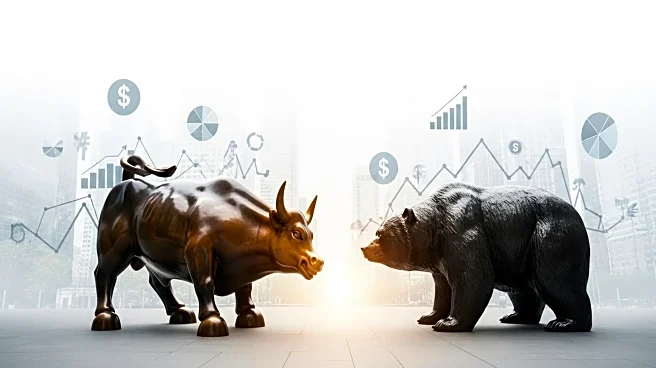What is the story about?
What's Happening?
The U.S. stock market is facing potential volatility as a government shutdown looms. According to Bank of America, the S&P 500 typically experiences a loss of 5% between the week before and the week after a shutdown, based on historical data since 1990. However, during the shutdown from late 2018 to early 2019, the index rallied by 6%. President Trump has instructed federal agencies to prepare for mass firings if lawmakers fail to reach a funding agreement by the Wednesday deadline. While shutdowns generally have less impact on markets compared to debt ceiling breaches, the current weak economic backdrop could amplify the effects this time.
Why It's Important?
The potential government shutdown could have significant implications for the U.S. economy and stock market. Investors are concerned about the economic uncertainty and potential disruptions to federal operations. A shutdown could lead to decreased consumer confidence and spending, affecting various sectors. Additionally, the threat of mass firings could increase unemployment rates, further straining the economy. The stock market's response to the shutdown will be closely watched, as it could influence investor sentiment and market stability.
What's Next?
If the government fails to reach a funding agreement, a shutdown will occur, leading to potential market volatility. Investors and analysts will monitor the situation closely, assessing the impact on stock prices and economic indicators. Political leaders may face pressure to negotiate a resolution to minimize economic disruptions. The market's reaction will depend on the duration and severity of the shutdown, as well as any subsequent policy measures taken to address the economic fallout.
Beyond the Headlines
The potential government shutdown raises ethical and political questions about governance and fiscal responsibility. The impact on federal employees and services highlights the human cost of political stalemates. Long-term, repeated shutdowns could erode public trust in government institutions and affect the U.S.'s global economic standing. The situation underscores the need for effective bipartisan cooperation to ensure stable governance and economic resilience.














